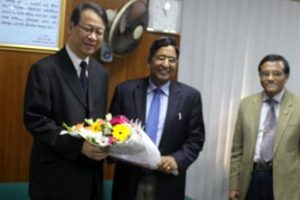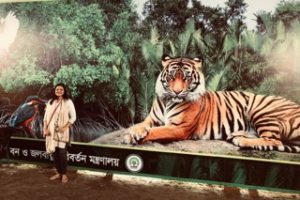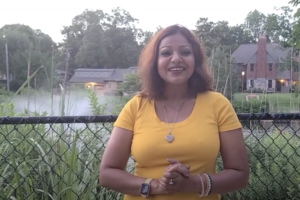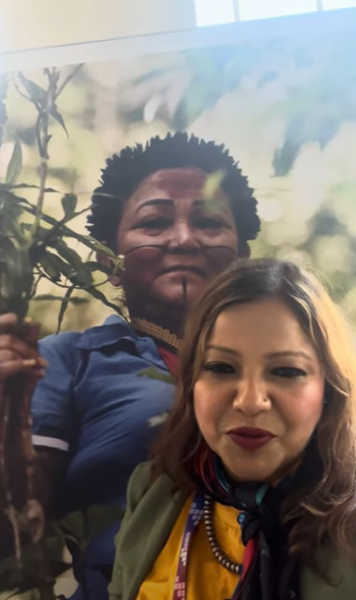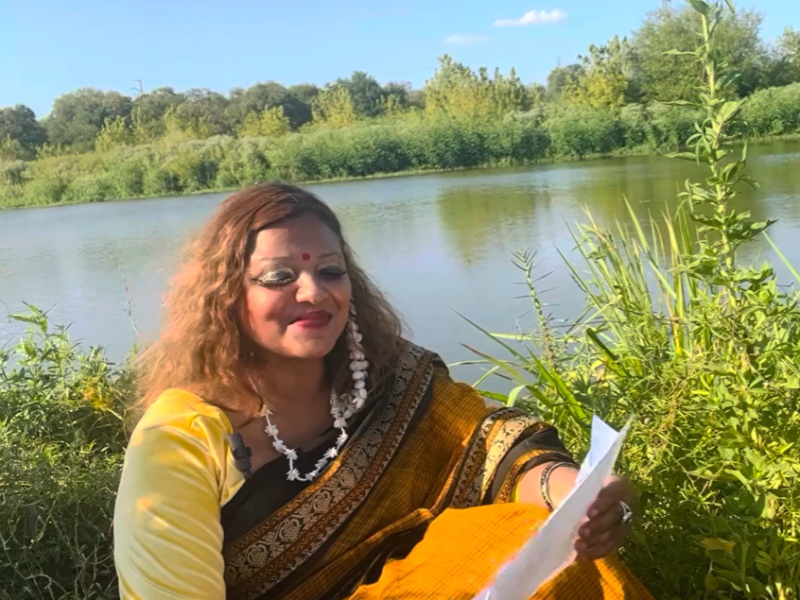Putting to one side Russia’s unfinished battle against the coronavirus, President Vladimir Putin on Wednesday celebrated his country’s victory 75 years ago against Nazi Germany, presiding over an enormous military parade through Red Square that featured thousands of soldiers marching shoulder-to-shoulder without face masks.
The parade, the largest of several celebrations taking place nationwide, was originally scheduled for May 9, a joyous annual holiday known as Victory Day, but was delayed for six weeks by the coronavirus pandemic. The outbreak continues to grow in Russia — the world’s third hardest-hit country, with nearly 600,000 cases — but at a slightly slower pace than before.
Aging veterans in their 80s and 90s joined Putin on the reviewing stand, nearly all of them without masks, to watch 14,000 troops march in tight formation to stirring martial music. Tanks, missiles and other military equipment then trundled through the square in front of the Kremlin, followed by a flyover by strategic bombers, fighter jets and helicopters.
Putin, who has spent most of the past three months cooped up at his country residence, is hoping that the Moscow parade, one of dozens held across the country on Wednesday, will help lift the gloom that has settled over his rule in recent weeks. The crisis has sent his approval rating to its lowest level since he came to power 20 years ago.
Having staked so much of his previous popularity on Russia’s re-emergence as a major global power, Putin on Wednesday basked in the glory of Russia’s immense role in the defeat of Hitler’s Germany and the liberation of Europe during World War II.
“It is impossible to even imagine what would have happened to the world had it not been for the Red Army that stood up to defend it” against fascism, he said in a speech at the start of the parade.
Few foreign leaders, however, were on hand to hear his message. European leaders all stayed away, except for the president of Serbia, Aleksandar Vucic, and the president of Moldova, a former Soviet republic. President Emmanuel Macron of France and others had planned to attend the previously planned parade in May but skipped the rescheduled event.
China and India, vying for Russia’s support after recent clashes between their armies in a remote border region, sent senior officials and also soldiers, who took part in the parade. China sent the largest foreign contingent.
The military parades began shortly after midnight Moscow time on Tuesday evening in Kamchatka on the Pacific Ocean and then rolled across the country’s 11 time zones. As the main parade was winding down in Moscow, troops began marching in Kaliningrad, a former German territory known as East Prussia that was seized by the Soviet Union after Hitler’s defeat.
People watch the aerial parade for Victory Day, marking the 75th anniversary since the capitulation of Nazi Germany in World War II, in Moscow, on Saturday, May 9, 2020. The New York TimesPeople watch the aerial parade for Victory Day, marking the 75th anniversary since the capitulation of Nazi Germany in World War II, in Moscow, on Saturday, May 9, 2020. The New York TimesKremlin critics have accused Putin of gambling with public health in order to put himself at the center of a gigantic display of Russia’s military might and to rally support ahead of a nationwide vote on his future. Voting on constitutional amendments that would allow Putin to stay in power until 2036 begins Thursday.
The mayor of Moscow, Sergei Sobyanin, urged residents to watch the parade on television instead of thronging the streets as they usually do. Thousands of people still went outside to watch, but the crowds were smaller than usual.
Yelena Loginova, a 36-year-old psychologist who attended the parade, said she had ignored the mayor’s advice to watch events on TV because it was “much more interesting” to see it in person.
“You immediately have totally different emotions than on television,” she said. “You feel it directly when the heavy ones drive by. The asphalt shakes under your feet.”
She said she had travelled with her son from a Yoshkar-Ola, a town 500 miles east of Moscow, just to see the parade in person. Wearing a mask pulled down to her chin, she said she had not even thought about the possible risks of standing in a crowd of strangers on the street.
Russia on Thursday reported 7,176 new coronavirus cases over the previous 24 hours. The daily increase in infections has dropped from around 10,000 in May, but public health officials have warned that the battle is far from over.
In a sign of the risks involved in holding such a large-scale event, two members of an official delegation that travelled from Kyrgyzstan to attend the Moscow parade tested positive for coronavirus. The Kyrgyz president, who was travelling with them, stayed away from Red Square on Thursday.
Even Putin, in a televised address to the nation on Wednesday, cautioned that “the fight against the epidemic continues.”
With the economy and his ratings slumping, however, Putin has sought to revive the country’s spirit with proud memories of Russia’s unequivocal triumph over Nazi Germany.
The Soviet Union lost up to 27 million lives during World War II, known in Russia as the Great Patriotic War. Putin has made the victory over fascism the touchstone of Russia’s collective identity, while also using it as a propaganda battering ram against the West or any grievances directed at Moscow from abroad.
In a lengthy essay published last week, Putin assailed what he described as Western distortions of history, defending a 1939 pact of friendship between the Kremlin and Hitler as an inevitable consequence of appeasement by Britain, France and others. He also claimed that Baltic states, seized by the Soviet Union as part of the 1939 pact with Hitler, had freely given up their independence and had no right to complain about Soviet aggression.
Putin’s own version of history has infuriated Baltic countries and also Poland, which he accused of conniving with Hitler. But the issue has become so inviolable inside Russia that among the constitutional amendments up for a vote this week is one banning the “distortion” of Russia’s past.
Moscow held its first grand victory parade on June 24, 1945, an event presided over by Stalin, and resumed the ritual in 1965 under the Soviet leader Leonid Brezhnev. The tradition was halted after the 1991 collapse of the Soviet Union until President Boris Yeltsin revived it in 1995, the 50th anniversary of Hitler’s defeat, with a large display of troops and military hardware in Red Square on May 9 Victory Day.
President Bill Clinton and several other Western leaders attended Yeltsin’s celebration, a display of respect for Russia’s wartime sacrifice that Putin had hoped would be repeated this year.
While pledging that Russia “will never forget our allies’ contribution to the common victory,” Putin had a blunt message for absent Western leaders on Thursday:
“Remember that the Soviet people shouldered the main burden of the fight against Nazism,” he said, “It was our people who defeated the terrible, total evil, crushed more than 600 divisions, destroyed 75% of the total number of Nazi aircraft, tanks, artillery units, and walked their righteous and infinitely sacrificial path to the end, to their victorious destination.”
This, he said, “is the main truth about the war, honest and clear.”






